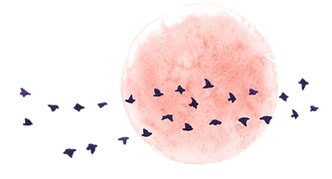A user manual for the Body-Mind
workshops by
Andrew Cook MSc RCST
 Dissociation
Dissociation

I can say from my personal experience that dissociation is one of the most troublesome of conditions.
Until I learned how to be more embodied, I suffered from moderate dissociation for the first 30 or so years of my life. So when I treat people who are struggling with dissociation, I recognise many of the symptoms they describe.
Dissociation may be very physiological/physical, or psychological, or "energetic" or even spiritual. Or any combination of two or more of these. Dissociation is one of the best demonstrations that the body and mind, the senses and the sense of self, the physiology and the state of consciousness - are a deeply intermeshed continuum.
Everyone is familiar with low-level dissociation. It is a tendency to switch off ort numb out, a disconnection from people or from life, unexplained tiredness, a sense that things are at a distance, a slightly cardboard quality to the senses, as if the world is not so easy to touch, or as if everything is slightly less colourful. We are supposed to be able to dissociate to deal with overwhelming conditions. But also we are only really supposed to be dissociated/overwhelmed for a short time. In this modern world, many people are chronically dissociated. This may be quite low level to the point that it is hardly noticeable at all, or may be more severe. For more information see my new Free online book at body-mind-resilience.com
Mental, sensory and psychological Dissociative symptoms
I have listed a selection of more severe dissociative symptoms below. The type of symptom is not necessarily a good indicator of how easy treatment might be, and is more indicative of how your body is organising itself internally. Although there are several possible pathways, dissociation essentially takes us a small way towards hibernation. Very very few people experience all of these symptoms.
- General numbness - physical and/or emotional - interspersed with times of strong difficult emotions such as panic or isolation or feeling unable to cope (Autistic spectrum disorders are one way this manifests)
- The mind goes blank - not quiet, but blank
- The world looks alien (depersonalisation / derealisation): "looking through a glass darkly"
- Dizziness, disorientation, swimmy light headedness, difficulty being aware of the feet or lower legs
- Occasional loss of hearing, speech goes slow and blurbly
- Muscles feel weak (even if they are in reality strong), floppy, lack of energy, heaviness, tending to ME/CFS and depression
- Flaccid muscles, tending to hypermobility
- Body dysmorphia - feeling bigger or smaller than you actually are. May also include out of body experiences.
- Hypersensitivity to sounds, foods, pollutants or other irritants - sometimes may feel like having no skin. Psychic hypersensitivity to other people's moods
- Loss of coordination - may include conditions such as dyspraxia and Tourettes
- Sleepwalking, sleep paralysis, narcolepsy and other sleep disorders
- Lost periods of time, finding yourself in places or clothes you don't recognise
- The strongest symptoms tend towards schizophrenia and dissociative identity. These may be relatively stable, or they may severely disrupt everyday life and require high quality psychological intervention.
Dissociation cannot be changed by willpower alone
Dissociation is a side effect of PTSD or "trauma". But as described elsewhere on this website, trauma is not necessarily caused by an obvious massive event (like being in an explosion or war zone or major car crash). A surprisingly large number of people suffer from a trauma-like condition even though they have not experienced a traumatic event. The dissociated part of the response is the body's attempt to survive by turning inwards and shutting off the lights. This is run by a very primitive part of our neurology - you might say that it has the evolutionary state of a jellyfish! This means that it is very powerful, and runs a lot of the physiology and sensory system, and cannot normally be accessed through the cognitive brain (frontal cortex) or language centres (temporal lobes/hypothalamus).
I have developed and tested a range of techniques over the years which can reduce or even eliminate dissociative symptoms. The exact techniques used and how long treatment may take is so individually variable that it is almost impossible to give general guidance. I suggest that you consider coming for about six sessions. By then, simple dissociations will have reduced, and/or it should be clear what scale of treatment might be necessary to achieve the changes you want. The first few sessions are largely about teaching you how to deliberately (temporarily) reduce the level of dissociation, so that we can work more effectively together to create a more permanent effect.





<< ¦ Top ¦ Menu ¦ Front page ¦ Body-Mind ¦ CST/Clinic ¦ Contact ¦ Site Map ¦ Search
all content © Andrew Cook, Norwich UK, 2021-2024



